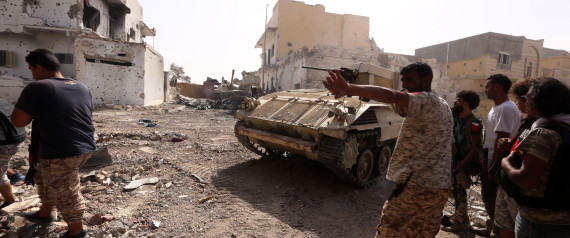 Details of a failure of mediation efforts between Libya’s Prime Minister-designate Fayez Serraj of the UN-backed Government of National Accord (GNA) and Field Marshall Khalifa Haftar of the Libyan National Army in Cairo, spearheaded by Egyptian chief-of-staff Colonel Lt. Gen. Mahmoud Hegazy, have begun to emerge. The two sides did not have direct talks on Tuesday as initially planned and the Egyptian mediator talked to each party separately.
Details of a failure of mediation efforts between Libya’s Prime Minister-designate Fayez Serraj of the UN-backed Government of National Accord (GNA) and Field Marshall Khalifa Haftar of the Libyan National Army in Cairo, spearheaded by Egyptian chief-of-staff Colonel Lt. Gen. Mahmoud Hegazy, have begun to emerge. The two sides did not have direct talks on Tuesday as initially planned and the Egyptian mediator talked to each party separately.
However, they have reportedly agreed on forming a committee to renegotiate the Libyan Political Agreement (LPA) reached in 2015 under the auspices of the UN.
Egyptian Army spokesman Mohamed Samir said the two sides have also agreed on holding fresh parliamentary and presidential elections in early 2018.
Haftar, who is loyal to the Tobruk-based House of Representatives (HoR) and the latter’s president, Ageela Saleh, declined to commit himself to the agreement stating that he would study the idea. According to the agreement, the 2018 elections would be preceded by the review of the 2015 LPA agreement and its endorsement by the HoR.
Other reports on the discord between the two authorities revealed that Haftar refused to accept Serraj’s plan for a three-man presidency, a separate government, the position of commander-in-chief to be held jointly by the heads of the Presidency Council, the HoR and the State Council and a supreme military council, where the field marshal would participate.
Observers have noted that the plan to sideline Haftar as per the 2015 agreement has Ashraf Al Tulty contributed to political impasse in the country. GNA Spokesman said there will be a “180 degree turn” if Haftar accepts the agreement.
The Egyptian mediation is among many other efforts trying to end the war in Libya but the main tussle continues to be dividing the views of Tobruk and Tripoli authorities.
